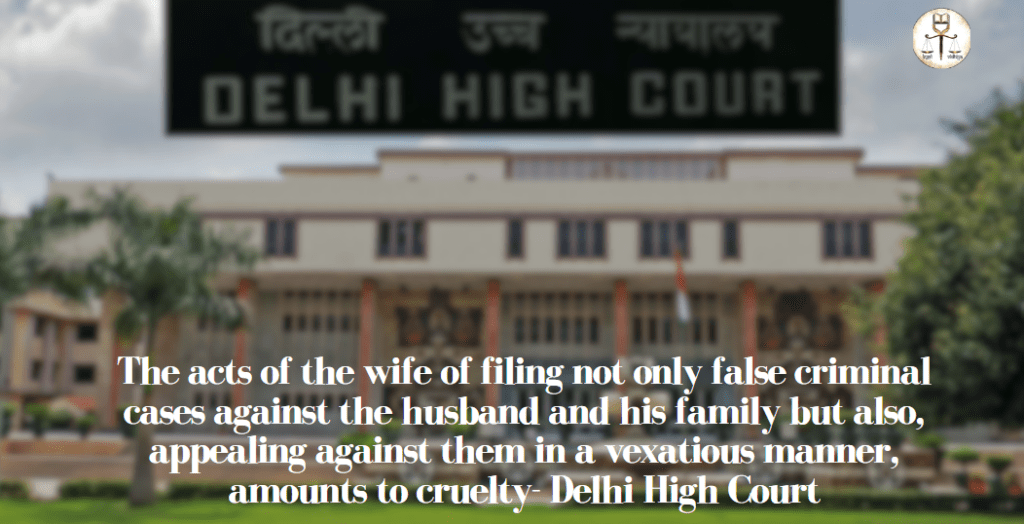
The Delhi High Court deems unilateral withdrawal from a divorce settlement without just cause as a form of mental cruelty.
The Delhi High Court recently said that backing out of a divorce agreement both parties agreed on is a kind of mental cruelty. They pointed out that doing this without a good reason makes things even harder for the person who didn’t back out. In a specific case, a woman challenged a court’s decision to grant her husband a divorce.
The High Court noted that the woman’s withdrawal from the agreed divorce without a valid reason made things tough for her husband. The court saw that their fights were more about egos than valid reasons. Despite the wife’s claims of her husband being unfaithful, the court found no proof.
In the end, the court rejected the appeal, confirming the divorce granted due to cruelty under the Hindu Marriage Act, 1955. Senior Advocate Raman Kapur and Advocate Varun Kapur represented the wife, while advocates Amarjit Singh Bedi and Varun Chandiok represented the husband.
Facts of the case-
The case involves a divorce petition filed by the husband, alleging acts of cruelty by the wife. The husband claims that the wife created disturbances in the family, berated him over postponed honeymoon plans and financial constraints, had cleanliness obsessions, and failed in her marital duties. Additionally, he alleges disrespectful behavior towards his friends and family, including his elderly grandmother. The husband also mentions a false complaint filed by the wife leading to criminal proceedings. The wife denies these allegations, asserting that the husband deserted her, harassed her for dowry, and blocked her access to their shared property. She claims to have faced mistreatment from the husband and his family. The court will need to assess the evidence and arguments presented by both parties to make a decision on the divorce petition.
Written by Samruddhi Kulkarni from ILS Law College pune (BA.LL.B).
Disclaimer: The materials provided herein are intended solely for informational purposes. Accessing or using the site or the materials does not establish an attorney-client relationship. The information presented on this site is not to be construed as legal or professional advice, and it should not be relied upon for such purposes or used as a substitute for advice from a licensed attorney in your state. Additionally, the viewpoint presented by the author is of a personal nature.




0 Comments